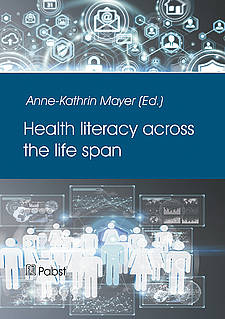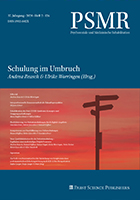It is undisputed that health is strongly influenced by individual efforts aimed at the promotion of health and the prevention of illness or recovery from diseases. These efforts need to be based on adequate health-related knowledge and skills to be effective. The authors argue that riskbehaviors are often based on a lack of knowledge or on misinformation.
Many health-related decisions, especially those about preventive actions and healthy lifestiles, are made without being in contact with health professionals and are based on information which is systematically sought for or accidentially encountered in everyday life, e.g. in conventional or digital media. However, health-related knowledge of medical laypeople contains lots of misinformation. The Internet in particular provides a flood of health information, the amount and complexity of which can lead to "health information overload".
Besides the questionable and divergent quality of available health information and bias which is caused by search engine algorithms, problems may be exacerbated by user habits. Individuals often selectively and/or uncritically use information accessed on the internet, or they feel overburdened or unsettled by contradictory information. Inadequate judgements and behaviors may also result from patient´s overestimating their expertise or their ability to use healthinformation effectively, particularly in those individuals who lack expertise in dealing with health information and, thus, are unaware of their deficits.
Literatur zum Thema
Anne-Kathrin Mayer (Ed.) Health literacy across the life span. Pabst, 168 pages. print: ISBN 978-3-95853-449-0. eBook: ISBN 978-3-95853-450-6























